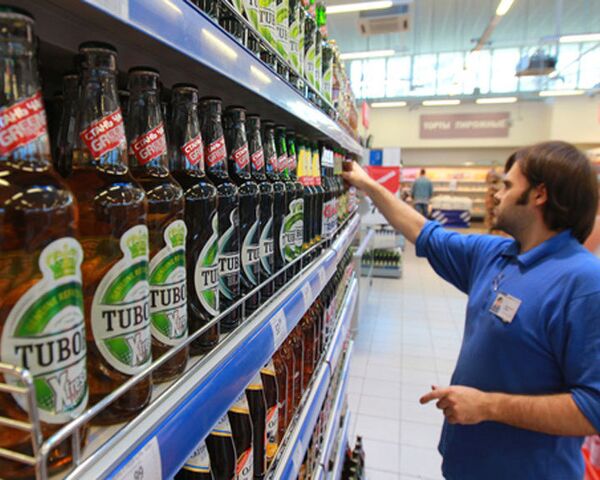MOSCOW, October 4 (RIA Novosti) - The Russian government has revealed plans to allow for the return of internet alcohol sales, but purchasers will only be able to buy it with their bank cards, Russian economic news agency Prime reports.
Alexandr Romanov, director of Russia’s Alcoholic Beverage Committee, a non-commercial partnership between alcohol producers and distributors, proposed an initiative to the Federal Service for Alcohol Market Regulation on Friday. Last month, Prime Minister Dmitri Medvedev had told the agency to work out a mechanism for the regulation and control of the sale of alcohol via the internet.
Stores will have to register for a license to sell alcohol online, and sales will only be possible by those using bank debit and credit cards.
The idea of restricting alcohol sales to people with bank cards is based on the idea, as Romanov noted, that they “are not issued to minors.” Regulators will set up a monitoring system, ensuring that alcohol deliveries don’t take place between 11pm and 8am, to conform to a recent law preventing late-night alcohol sales.
Monitoring will also include undercover inspectors, whose task will be to catch unlicensed sellers, whose goods are often counterfeit.
Romanov believes the new proposals will “clean the internet of the criminal element in the sale of alcohol.”
Russia banned the sale of alcohol online in 2007, in an attempt to fight illegal and counterfeit selling.
Despite the ban, illegal sales are said to continue, and sites use legal loopholes and workarounds such as the provision of ‘free gifts’ of alcohol in exchange for the purchase of small items such as cigarette lighters, business news service RBK has said.
Russian officials have been fighting the phenomenon for years, most recently including the federal regulatory committee’s campaign in 2013 to block websites from offering counterfeit alcohol, and an 2014 April Duma initiative to toughen restrictions.
In 2013 Russian alcohol consumption averaged 13.5 liters per adult each month, down from a catastrophic 18 liters in 2010, largely due to a successful campaign to promote a healthy lifestyle. In April 2014 the Russian government approved objectives to further reduce consumption levels to 10 liters by 2020, thus reducing the toll the substance has taken on Russia’s demographic, economic and social wellbeing over many years.


